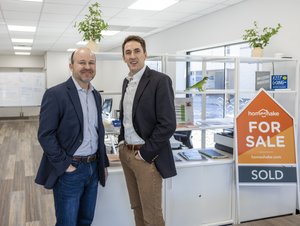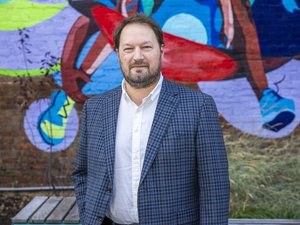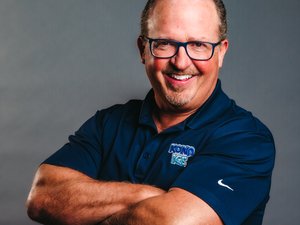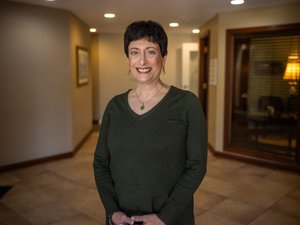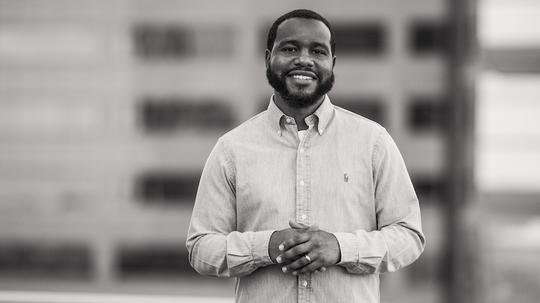
SoLo Funds co-founder and CEO Travis Holoway says that today, 78 percent of Americans live paycheck to paycheck. In addition to this staggering statistic, the leading two ways to access a loan under $1,000 for inevitable emergency expenses such as a car repair are borrowing money friends and family or payday loans.
This led Holoway and his co-founders to find a solution to this problem. SoLo Funds, which stands for social loans, is a lending platform that allows anyone with discretionary cash to use it to help someone in need. Users can download the SoLo Funds app and use it to either request a loan under $1,000 or provide money to another user requesting a loan.
“The idea of SoLo came from having friends and family who were asking my co-founders and I for small-dollar loans, such as $150, and wondering why people were asking for these small-dollar loans,” Holoway said. “We wanted to know where we could send them to get these small-dollar loans rather than lending them money ourselves.”
All SoLo Funds loans are free of interest or other charges. This provides those in need with access to small-dollar loans more affordably than any other options around today. When the loan is repaid, borrowers can add an optional tip for the lender or a donation to SoLo Funds.
Holoway said the average SoLo Funds lender makes $14 per transaction, or about 7 to 8 percent of the money lent. The majority of SoLo Funds transactions — 97 percent — come through with a donation. Borrowers add an average donation of about 2 percent of the transaction.
Loans accessed through SoLo Funds must be paid back within 30 days, or the loan will go into a rollover period for two weeks. If the loan is not repaid before the end of the rollover period, lenders have the options to pass the debt on to a collector. However, this situation is rare. Less than one percent of SoLo funds loans are not paid back on time.
Holoway’s background as a former financial advisor as well as his imitate knowledge of what the average American goes through helped him find the right perspective to form SoLo Funds.
“Imagine every day, you are going to work and talking to people who are making hundreds of thousands of dollars per year, but when you get off work you open your phone and text messages say, ‘Can you send me $75 so that I can get gas in the car and not get fired?’“ Holoway said. “These two unique circumstances I was experiencing allowed this type of innovation to occur.”
Neither Holoway nor his co-founders grew up wealthy. Thus, they all recognized the need for the average American to learn financial literacy. Free financial literacy courses are available on the SoLo Funds app, where users can learn anything from budgeting 101 to retirement planning. You don’t have to be a lender or a borrower to access the courses—simply download the app and log on to learn more.
“Financial literacy is not taught in high school or college,” Holoway said. “Most people learn how to manage their finances by making mistakes, and those are some of the most costly mistakes anyone can make. When your income is low, those mistakes are much more impactful.”
SoLo Funds officially launched in April 2018. In the four months that the app has been available, 10,000 users have downloaded it and 2,500 loans have been provided. Holoway said wage stagnation and the fluctuation of incomes in the gig economy has contributed to SoLo Fund’s early success.
The startup is also working with Techstars Kansas City Accelerator. Holoway said SoLo Funds chose Kansas City because there has been a lot of attention on the city due to the documentary Dirty Money and the predatory lending practices the subject Scott Tucker became well-known for.
“When we saw the devastation he and his organization had on that city, we just felt like it was the perfect scenario for us since we are technology created to disrupt that industry,” Holoway said.
SoLo funds is building relationships with Kansas City community organizations who are serving their target demographic, such as single mothers, college students and service workers.
Ultimately, SoLo Funds believes that they are a data company and that the data they collect on their demographic will be used as a determining factor on how creditworthy they are in the future. While the SoLo Funds demographic may not be measurable by traditional criteria such as credit card payments, the data SoLo Funds collects could be shared with traditional lending institutions.
For example, SoLo Funds can share that users have a history of paying back loans on time or even early. Alternative data will eventually be needed to underwrite the millennial and other future generations, and SoLo funds has that data that is otherwise nonexistent today.
“The ultimate goal for SoLo in the future is to be a path forward to upper financial mobility,” Holoway said. “We do not want to leave people where they are; we want to meet them where they are and give them a blueprint to get where they want to be financially.”
